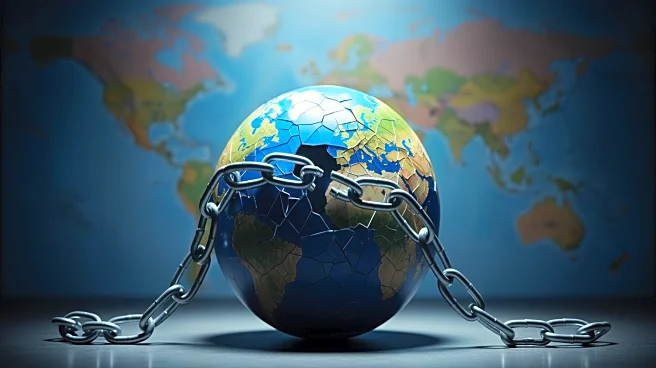What's Happening?
An Iranian plan to assassinate Israeli Ambassador to Mexico, Einat Kranz Neiger, was thwarted by Mexican security forces, as confirmed by Israel's Foreign Ministry. The plot, intended for the first half of 2025, was part of a broader pattern of Iranian attempts
to target diplomats and dissidents globally. The U.S. official emphasized that there is currently no active threat, but highlighted the ongoing risk posed by Iran's actions. The Israeli Foreign Ministry expressed gratitude to Mexico for its role in preventing the attack and reiterated its commitment to working with international security agencies to counter threats from Iran and its proxies.
Why It's Important?
The foiled assassination plot underscores the persistent threat posed by Iran's global network targeting adversaries, including diplomats and journalists. This incident highlights the geopolitical tensions involving Iran, Israel, and their respective allies, potentially impacting diplomatic relations and security protocols worldwide. Countries with an Iranian presence may need to reassess their security measures to protect their officials and citizens from similar threats. The situation also reflects the broader challenges in managing international terrorism and maintaining global security, with implications for U.S. foreign policy and its alliances.
What's Next?
While the immediate threat has been neutralized, ongoing vigilance is necessary to prevent future attempts by Iran and its proxies. The U.S. and other nations may increase intelligence sharing and security cooperation to counteract Iranian activities. Diplomatic efforts could be intensified to address the underlying tensions and seek resolutions to reduce the risk of such plots. Additionally, countries may review and strengthen their security protocols for embassies and diplomats, particularly in regions with heightened risks.
Beyond the Headlines
The incident raises ethical and legal questions about state-sponsored terrorism and the measures required to counteract such threats. It also highlights the cultural and political dimensions of Iran's influence and the resistance it faces from targeted nations. Long-term, this could lead to shifts in international alliances and strategies to address state-sponsored terrorism, impacting global diplomatic and security landscapes.















